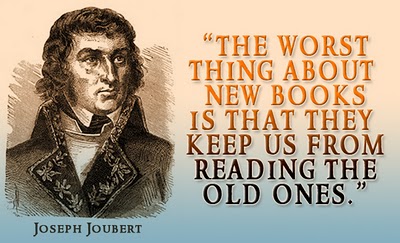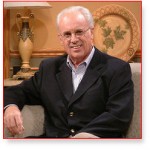
“A man can no more diminish God’s glory by refusing to worship Him than a lunatic can put out the sun by scribbling ‘darkness’ on the wall of his cell.” —C.S. Lewis
“Little sins often slide into the soul, and breed, and work secretly and undiscernibly in the soul, til they come to be so strong, as to trample upon the soul, and cut the throat of the soul…there is more evil in the least sin than in the greatest affliction.” – Thomas Brooks
“It is neglect of the Bible which makes so many a prey to the first false teacher whom they hear.” – J.C. Ryle
“Backsliding generally first begins with neglect of private prayer.” – J.C. Ryle
“We spend our years with sighing; it is a valley of tears; but death is the funeral of all our sorrows.” – Thomas Watson
“Faith is a living, bold trust in God’s grace, so certain of God’s favor that it would risk death a thousand times trusting in it. Such confidence and knowledge of God’s grace makes you happy, joyful and bold in your relationship to God and all creatures. The Holy Spirit makes this happen through faith. Because of it, you freely, willingly and joyfully do good to everyone, serve everyone, suffer all kinds of things, love and praise the God who has shown you such grace.” – Martin Luther
Martin Luther in his Commentary on Galatians tells us how to answer the Accuser: “Paul does not say that works are objectionable, but to build one’s hopes for righteousness on works is disastrous, for that makes Christ good for nothing. Let us bear this in mind when the devil accuses our conscience. When that dragon accuses us of having done no good at all, say to him,”You trouble me with the remembrance of my past sins; you remind me that I have done no good. But this does not bother me, because if I were to trust in my own good deeds, or despair because I have done no good deeds, Christ would profit me neither way. I am not going to make Him unprofitable to me. This I would do if I should presume to purchase for myself the favor of God by my good deeds or if I should despair of my salvation because of my sins.”
“True faith takes its character and quality from its object and not from itself. Faith gets a man out of himself and into Christ. Its strength therefore depends on the character of Christ. Even those of us who have weak faith have the same strong Christ as others!” – Sinclair Ferguson, The Christian Life
“There are times when God asks nothing of his children except silence, patience and tears.” – Charles Seymour Robinson
“If you don’t believe in the devil’s existence, just try resisting him for a while.” – Charles Finney (yeah, I know, it’s the heretic Finney; but it’s a great quote)
“The chief and fundamental thing in the Gospel is this, that before you take Christ as your example, you recognize and accept Him as God’s gift to you; so that when you see or hear Him in any of His work of suffering, you do not doubt but believe that He, Christ Himself, with such work or suffering of His, is most truly your very own, whereon you may rely as confidently as if you had done that work… See, this is to understand aright the Gospel, that is, the infinite grace of God… This is the mighty fire of God’s love toward us whereby He makes the conscience confident, joyful, and content.” – Martin Luther, as quoted in Sidney Greidanus, Preaching Christ from the Old Testament: A Contemporary Hermeneutical Method (Eerdmans, 1999), 119
“A cold, hard-hearted Christian is the greatest absurdity and contradiction. It is as if one should speak of dark brightness, or a false truth!” – Jonathan Edwards, ‘Charity and Its Fruits,’ in The Works of Jonathan Edwards, Yale ed., 8:147
Concerning the gift of our Great High Priest and His prayers of intercession for us:
Louis Berkhof: “It is a consoling thought that Christ is praying for us, even when we are negligent in our prayer life; that He is presenting to the Father those spiritual needs which were not present to our minds and which we often neglect to include in our prayers; and that He prays for our protection against the dangers of which we are not even conscious, and against the enemies which threaten us, though we do not notice it. He is praying that our faith may not cease, and that we may come out victoriously in the end.” (Systematic Theology p. 403)
Robert Murray M’Cheyne: “If I could hear Christ praying for me in the next room, I would not fear a million enemies. Yet distance makes no difference. He is praying for me.”

 Time and time again, we were taught that Jesus was standing, waiting, knocking, waiting, knocking, just hoping to be invited into our hearts.
Time and time again, we were taught that Jesus was standing, waiting, knocking, waiting, knocking, just hoping to be invited into our hearts. The invitation is, first of all, a personal one, since salvation is individual. But He is knocking on the door of the church, calling the many to saving faith, so that He may enter the church. If one person (anyone) opened the door by repentance and faith, Christ would enter that church through that individual. The picture of Christ outside the Laodicean church strongly implies that, unlike the Sardis, there were no believers there at all.
The invitation is, first of all, a personal one, since salvation is individual. But He is knocking on the door of the church, calling the many to saving faith, so that He may enter the church. If one person (anyone) opened the door by repentance and faith, Christ would enter that church through that individual. The picture of Christ outside the Laodicean church strongly implies that, unlike the Sardis, there were no believers there at all. I read this short article by Dr. R. C. Sproul Jr, a few times over just now and found nothing at all that could in any way be termed “politically correct,” yet biblically, I think he’s right on. It was written in the immediate aftermath of the news of Osama Bin Laden’s death in Pakistan:
I read this short article by Dr. R. C. Sproul Jr, a few times over just now and found nothing at all that could in any way be termed “politically correct,” yet biblically, I think he’s right on. It was written in the immediate aftermath of the news of Osama Bin Laden’s death in Pakistan: That said, what does it say about us that we are dancing in the streets today, while we Christians were so silent and ashamed when notorious abortionist George Tiller was killed? Please don’t misunderstand. I do not believe that private citizens should take the law into their own hands to kill abortionists. But the same state that has spent millions of dollars and nearly ten years to hunt down one killer in Bin Laden, in those same years has spent millions of dollars to protect men like George Tiller whose grisly work has resulted in many times over the number of deaths Bin Laden gave us. God bless the USA?
That said, what does it say about us that we are dancing in the streets today, while we Christians were so silent and ashamed when notorious abortionist George Tiller was killed? Please don’t misunderstand. I do not believe that private citizens should take the law into their own hands to kill abortionists. But the same state that has spent millions of dollars and nearly ten years to hunt down one killer in Bin Laden, in those same years has spent millions of dollars to protect men like George Tiller whose grisly work has resulted in many times over the number of deaths Bin Laden gave us. God bless the USA?